 W
WAli Ahmad Said Esber, also known by the pen name Adonis or Adunis, is a Syrian poet, essayist and translator. He led a modernist revolution in the second half of the 20th century, "exerting a seismic influence" on Arabic poetry comparable to T.S. Eliot's in the anglophone world.
 W
WRafael Alberti Merello was a Spanish poet, a member of the Generation of '27. He is considered one of the greatest literary figures of the so-called Silver Age of Spanish Literature, and he won numerous prizes and awards. He died aged 96. After the Spanish Civil War, he went into exile because of his Marxist beliefs. On his return to Spain after the death of Franco, he was named Hijo Predilecto de Andalucía in 1983 and Doctor Honoris Causa by the Universidad de Cádiz in 1985.
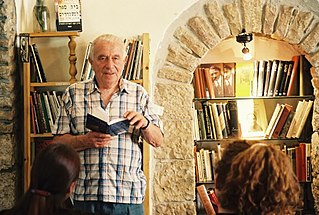 W
WYehuda Amichai was an Israeli poet. Amichai is considered, both in Israel and internationally, as Israel's greatest modern poet, and one of the leading poets worldwide. He also wrote two novels and several short stories. He was one of the first to write in colloquial Hebrew.
 W
WMargaret Eleanor Atwood is a Canadian poet, novelist, literary critic, essayist, teacher, environmental activist, and inventor. Since 1961, she has published 18 books of poetry, 18 novels, 11 books of non-fiction, nine collections of short fiction, eight children's books, and two graphic novels, as well as a number of small press editions of both poetry and fiction. Atwood has won numerous awards and honors for her writing, including the Booker Prize (twice), Arthur C. Clarke Award, Governor General's Award, Franz Kafka Prize, Princess of Asturias Awards, and the National Book Critics and PEN Center USA Lifetime Achievement Awards. A number of her works have been adapted for film and television.
 W
WWystan Hugh Auden was an Anglo-American poet. Auden's poetry was noted for its stylistic and technical achievement, its engagement with politics, morals, love, and religion, and its variety in tone, form, and content. Some of his best known poems are about love, such as "Funeral Blues"; on political and social themes, such as "September 1, 1939" and "The Shield of Achilles"; on cultural and psychological themes, such as The Age of Anxiety; and on religious themes such as "For the Time Being" and "Horae Canonicae".
 W
WGennadiy Nikolaevich Aygi was a Chuvash poet and a translator. His poetry is written both in Chuvash and in Russian.
 W
WBei Dao is the pen name of the Chinese-American writer Zhao Zhenkai. Among the most acclaimed Chinese-language poets of his generation, he has been repeatedly nominated for the Nobel Prize in Literature. In addition to poetry, he is the author of short fiction, essays, and a memoir. Known as a dissident, he is a prominent representative of a school of poetry known variously in the West as "Misty" or "Obscure" Poetry.
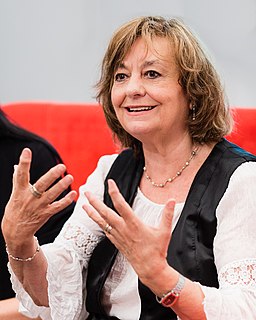 W
WAna Blandiana is a Romanian poet, essayist, and political figure. She is considered one of the leading contemporary Romanian authors. She took her name after Blandiana, near Vințu de Jos, Alba County, her mother's home village.
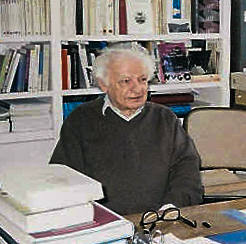 W
WYves Jean Bonnefoy was a French poet and art historian. He also published a number of translations, most notably the plays of William Shakespeare which are considered among the best in French. He was professor at the Collège de France from 1981 to 1993 and is the author of several works on art, art history, and artists including Miró and Giacometti, and a monograph on Paris-based Iranian artist Farhad Ostovani. The Encyclopædia Britannica states that Bonnefoy was ″perhaps the most important French poet of the latter half of the 20th century.″
 W
WIosif Aleksandrovich Brodsky was a Russian-American poet and essayist.
 W
WFazıl Hüsnü Dağlarca was one of the most prolific Turkish poets of the Turkish Republic with more than 60 collections of his poems published as of 2007. He was a laureate of the Struga Poetry Evenings Golden Wreath Award.
 W
WMahmoud Darwish was a Palestinian poet and author who was regarded as the Palestinian national poet. He won numerous awards for his works. Darwish used Palestine as a metaphor for the loss of Eden, birth and resurrection, and the anguish of dispossession and exile. He has been described as incarnating and reflecting "the tradition of the political poet in Islam, the man of action whose action is poetry." He also served as an editor for several literary magazines in Palestine.
 W
WMehmedalija "Mak" Dizdar was a Bosnian poet. His poetry combined influences from the Bosnian Christian culture, Islamic mysticism and cultural remains of medieval Bosnia, and especially the stećci.
 W
WHans Magnus Enzensberger is a German author, poet, translator and editor. He has also written under the pseudonym Andreas Thalmayr.
 W
WIrwin Allen Ginsberg was an American poet and writer. As a student at Columbia University in the 1940s, he began friendships with William S. Burroughs and Jack Kerouac, forming the core of the Beat Generation. He vigorously opposed militarism, economic materialism, and sexual repression, and he embodied various aspects of this counterculture with his views on drugs, hostility to bureaucracy, and openness to Eastern religions.
 W
WSeamus Justin Heaney was an Irish poet, playwright and translator. He received the 1995 Nobel Prize in Literature. Among his best-known works is Death of a Naturalist (1966), his first major published volume. Heaney was and is still recognised as one of the principal contributors to poetry in Ireland during his lifetime. American poet Robert Lowell described him as "the most important Irish poet since Yeats", and many others, including the academic John Sutherland, have said that he was "the greatest poet of our age". Robert Pinsky has stated that "with his wonderful gift of eye and ear Heaney has the gift of the story-teller." Upon his death in 2013, The Independent described him as "probably the best-known poet in the world".
 W
WEdward James Hughes was an English poet, translator, and children's writer. Critics frequently rank him as one of the best poets of his generation, and one of the twentieth century's greatest writers. He was appointed Poet Laureate in 1984 and held the office until his death. In 2008 The Times ranked Hughes fourth on their list of "The 50 greatest British writers since 1945".
 W
WFerenc Juhász was a Hungarian poet and Golden Wreath laureate (1992). He was considered a close contender for the Nobel Prize for Literature in 1976. His brother was historian Gyula Juhász.
 W
WKo Un is a South Korean poet whose works have been translated and published in more than fifteen countries. He had been imprisoned many times due to his role in the campaign for Korean democracy and was later mentioned in Korea as one of the front runners for the Nobel Prize in Literature.
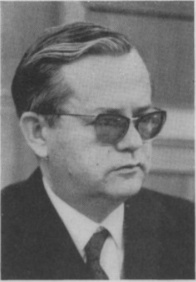 W
WBlaže Koneski was a Yugoslav and Macedonian poet, writer, literary translator, and linguistic scholar. His major contribution was to the codification of the standard Macedonian language. He is the key figure who shaped Macedonian literature and intellectual life in the country. However Koneski has been accused of serbianizing the Macedonian standard language.
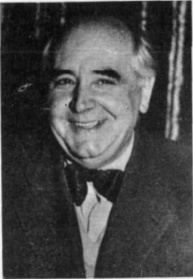 W
WMiroslav Krleža was a Croatian writer and a prominent figure in cultural life of both Yugoslav states, the Kingdom (1918–1941) and the Socialist Republic. A one time Vice President and General Secretary of the Yugoslav Academy of Sciences and Arts (JAZU), he has often been proclaimed the greatest Croatian writer of the 20th century and beyond.
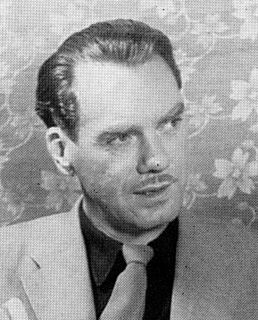 W
WNils Artur Lundkvist was a Swedish writer, poet and literary critic. He was a member of the Swedish Academy from 1968.
 W
WDesanka Maksimović was a Serbian poet, writer and translator. Her first works were published in the literary journal Misao in 1920, while she was studying at the University of Belgrade. Within a few years, her poems appeared in the Serbian Literary Herald, Belgrade's most influential literary publication. In 1925, Maksimović earned a French Government scholarship for a year's study at the University of Paris. Upon her return, she was appointed a professor at Belgrade's elite First High School for Girls, a position she would hold continuously until World War II.
 W
WMateja Matevski was a Macedonian poet, literary and theater critic, essayist, and translator.
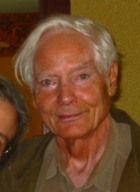 W
WWilliam Stanley Merwin was an American poet who wrote more than fifty books of poetry and prose, and produced many works in translation. During the 1960s anti-war movement, Merwin's unique craft was thematically characterized by indirect, unpunctuated narration. In the 1980s and 1990s, his writing influence derived from an interest in Buddhist philosophy and deep ecology. Residing in a rural part of Maui, Hawaii, he wrote prolifically and was dedicated to the restoration of the island's rainforests.
 W
WEugenio Montale was an Italian poet, prose writer, editor and translator, and recipient of the 1975 Nobel Prize in Literature.
Nancy Morejón is a Cuban poet, critic, and essayist. She was a recipient of the Struga Poetry Evenings Golden Wreath Award.
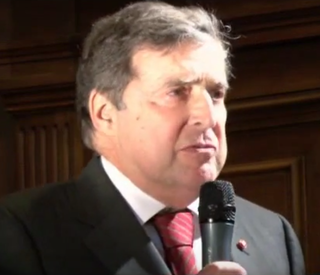 W
WVasco Navarro da Graça Moura, GCSE GCIH OSE was a Portuguese lawyer, writer, translator and politician, son of Francisco José da Graça Moura and wife Maria Teresa Amado da Cunha Seixas Navarro de Castro, of Northern Portugal bourgeoisie.
 W
WRicardo Eliécer Neftalí Reyes Basoalto, better known by his pen name and, later, legal name Pablo Neruda, was a Chilean poet-diplomat and politician who won the Nobel Prize for Literature in 1971. Neruda became known as a poet when he was 13 years old, and wrote in a variety of styles, including surrealist poems, historical epics, overtly political manifestos, a prose autobiography, and passionate love poems such as the ones in his collection Twenty Love Poems and a Song of Despair (1924).
 W
WBulat Shalvovich Okudzhava was a Soviet and Russian poet, writer, musician, novelist, and singer-songwriter of Georgian-Armenian ancestry. He was one of the founders of the Soviet genre called "author song", or "guitar song", and the author of about 200 songs, set to his own poetry. His songs are a mixture of Russian poetic and folksong traditions and the French chansonnier style represented by such contemporaries of Okudzhava as Georges Brassens. Though his songs were never overtly political, the freshness and independence of Okudzhava's artistic voice presented a subtle challenge to Soviet cultural authorities, who were thus hesitant for many years to give him official recognition.
 W
WMakoto Ōoka was a Japanese poet and literary critic. He pioneered the collaborative poetic form renshi in the 1990s, in which he has collaborated with such well-known literary figures as Charles Tomlinson, James Lasdun, Joseph Stanton, Shuntarō Tanikawa and Mikirō Sasaki.
 W
WJosé Emilio Pacheco Berny audio (help·info) was a Mexican poet, essayist, novelist and short story writer. He is regarded as one of the major Mexican poets of the second half of the 20th century. The Berlin International Literature Festival has praised him as "one of the most significant contemporary Latin American poets". In 2009 he was awarded the Cervantes Prize for his literary oeuvre.
 W
WMiodrag Pavlović was a Serbian poet, writer, critic and academic. Pavlović was twice nominated for the Nobel Literature Prize.
 W
WYiannis Ritsos was a Greek poet and left-wing activist and an active member of the Greek Resistance during World War II.
 W
WTadeusz Różewicz was a Polish poet, playwright, writer, and translator. Różewicz was in the first generation of Polish writers born after Poland regained its independence in 1918, following the century of foreign partitions. He was born in Radomsko, near Łódź, in 1921. He first published his poetry in 1938. During World War II, he served in the Polish underground Home Army. His elder brother, Janusz, also a poet, was executed by the Gestapo in 1944 for serving in the Polish resistance movement. His younger brother, Stanisław, became a noted film director and screenwriter.
 W
WRobert Ivanovich Rozhdestvensky was a Soviet-Russian poet and Songwriter who broke with socialist realism in the 1950s–1960s during the Khrushchev Thaw and, along with such poets as Andrey Voznesensky, Yevgeny Yevtushenko, and Bella Akhmadulina, pioneered a newer, fresher, and freer style of poetry in the Soviet Union.
 W
WTomaž Šalamun was a Slovenian poet who was a leading figure of postwar neo-avant-garde poetry in Central Europe and internationally acclaimed absurdist. His books of Slovene poetry have been translated into twenty-one languages, with nine of his thirty-nine books of poetry published in English. His work has been called a poetic bridge between old European roots and America. Šalamun was a member of the Slovenian Academy of Sciences and Arts. He lived in Ljubljana, Slovenia, and was married to the painter Metka Krašovec.
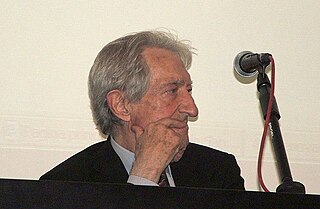 W
WEdoardo Sanguineti was a Genoese poet, writer and academic, universally considered one of the major Italian authors of the second half of the twentieth century.
 W
WLéopold Sédar Senghor was a Senegalese poet, politician and cultural theorist who, for two decades, served as the first president of Senegal (1960–80). Ideologically an African socialist, he was the major theoretician of Négritude. Senghor was also the founder of the Senegalese Democratic Bloc party.
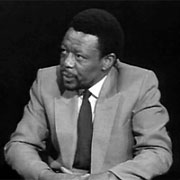 W
WMongane Wally Serote is a South African poet and writer. He became involved in political resistance to the apartheid government by joining the African National Congress (ANC) and in 1969 was arrested and detained for several months without trial. He subsequently spent years in exile, working in Botswana, and later London, England, for the ANC in their Arts and Culture Department, before eventually returning to South Africa in 1990. He was inaugurated as South Africa's National Poet Laureate in 2018.
 W
WCharles Simic is a Serbian American poet and former co-poetry editor of the Paris Review. He received the Pulitzer Prize for Poetry in 1990 for The World Doesn't End, and was a finalist of the Pulitzer Prize in 1986 for Selected Poems, 1963-1983 and in 1987 for Unending Blues. He was appointed the fifteenth Poet Laureate Consultant in Poetry to the Library of Congress in 2007.
 W
WNichita Stănescu was a Romanian poet and essayist.
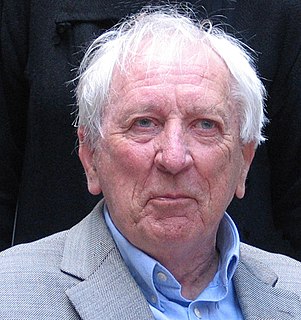 W
WTomas Gösta Tranströmer was a Swedish poet, psychologist and translator. His poems captured the long Swedish winters, the rhythm of the seasons and the palpable, atmospheric beauty of nature. Tranströmer's work is also characterized by a sense of mystery and wonder underlying the routine of everyday life, a quality which often gives his poems a religious dimension. He has been described as a Christian poet.
 W
WSachchidananda Hirananda Vatsyayan, popularly known by his nom de plume Agyeya, was an Indian writer, poet, novelist, literary critic, journalist, translator and revolutionary in Hindi language. He pioneered modern trends in Hindi poetry, as well as in fiction, criticism and journalism. He is regarded as the pioneer of the Prayogavaad (experimentalism) movements in modern Hindi literature.
 W
WAndrei Andreyevich Voznesensky was a Soviet and Russian poet and writer who had been referred to by Robert Lowell as "one of the greatest living poets in any language." He was one of the "Children of the '60s," a new wave of iconic Russian intellectuals led by the Khrushchev Thaw.
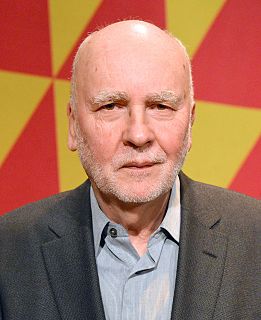 W
WAdam Zagajewski is a Polish poet, novelist, translator and essayist. He was awarded the 2004 Neustadt International Prize for Literature, the 2016 Griffin Poetry Prize Lifetime Recognition Award and the 2017 Princess of Asturias Award for Literature. He is considered as one of the leading poets of the Generation of '68' or the Polish New Wave and is one of Poland's most prominent contemporary poets.